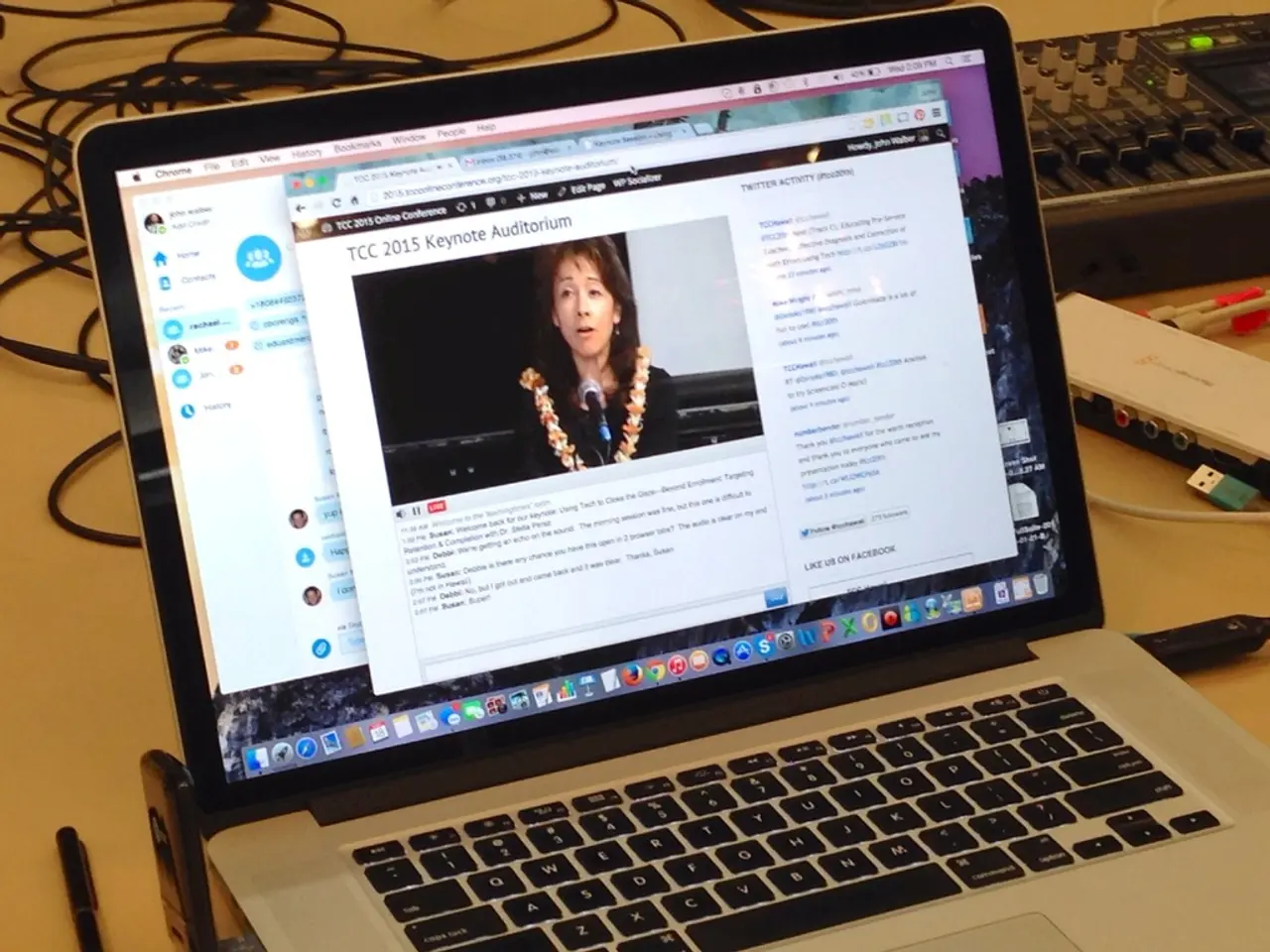Methods for Earning Profit in the Virtual World in Nine Simple Steps
The Metaverse, a virtual world that blurs the lines between reality and the digital realm, is rapidly gaining attention for its unique economy and currency system. This digital universe operates primarily on decentralized cryptocurrencies and digital tokens, forming an interactive and self-regulating ecosystem.
Facebook, among other companies, has announced plans to create a Metaverse where users can interact and socialize in a virtual environment. Meanwhile, platforms like Decentraland, The Sandbox, Somnium Space, and CryptoVoxels are already thriving, offering opportunities for users to create, experience, and monetize content and applications.
In this virtual world, users can engage in a variety of activities to generate real income. Real estate management and design are crucial aspects of virtual real estate investment, with buying and selling digital land being one of the most profitable activities. Other lucrative avenues include creating and selling NFTs, participating in events and conferences, providing marketing services, and playing games that offer in-game currency or rewards that can be exchanged for real money.
The economy and currency in the Metaverse operate as a decentralized digital economy, with in-world transactions, ownership and trading, play-to-earn models, governance, and international finance simplification being key features. Users purchase virtual goods and services using Metaverse coins or tokens as payment. Digital assets, often represented as NFTs, assure verified ownership and can be traded within or across different Metaverse marketplaces.
Gaming companies can partner with brands to create in-game items and experiences, while some Metaverse currencies grant holders voting rights over platform features or developments, enabling decentralized governance of the digital world. The blockchain and cryptocurrency foundation also allows the Metaverse to cut out traditional banking intermediaries, reducing transaction costs and enabling fast, secure cross-border payments.
Investors can also make money by investing in Metaverse platforms and companies, while becoming a Metaverse influencer can be a great way to make money by creating content, promoting products, and collaborating with brands. Major fashion brands like Gucci and Louis Vuitton have already entered the Metaverse, partnering with virtual influencers to promote their products.
The profitability of the Metaverse depends on various factors such as the user's investment, skills, and the platform they are using. Bitcoin, Ethereum, Litecoin, and Dogecoin are some of the cryptocurrencies used in the Metaverse. Users can earn money in the Metaverse by selling goods and services, participating in online auctions, and investing in virtual real estate.
NFTs, unique digital assets, can be used to monetize digital art, virtual goods, and collectibles. Users can also create and sell their own virtual goods and services, with the value determined by supply and demand. The Sandbox, for example, is a decentralized gaming platform that enables users to create, share, and monetize their own games and experiences.
Companies can host virtual events and concerts to promote their products and services, while content creation and tutorials are another way to make money in the Metaverse by creating and selling digital assets or charging for access to content. The Metaverse even has its own stock market where users can buy and sell virtual stocks.
In summary, the Metaverse's economy functions through decentralized cryptocurrencies and tokens that underpin buying, selling, trading, governance, and earning within and across virtual environments, supported by blockchain to ensure security, transparency, and efficiency. This digital frontier offers a plethora of opportunities for users to engage, create, and earn in a dynamic and ever-evolving virtual economy.
In this dynamic and evolving virtual economy of the Metaverse, technology plays a crucial role, with platforms like The Sandbox leveraging blockchain to create a decentralized gaming environment where users can create, share, and monetize their own games and experiences using NFTs. Meanwhile, finance is deeply intertwined in the Metaverse, as users can generate real income by engaging in various activities such as buying, selling, and trading digital assets, playing games that offer in-game currency or rewards, or even participating in virtual stock markets.




